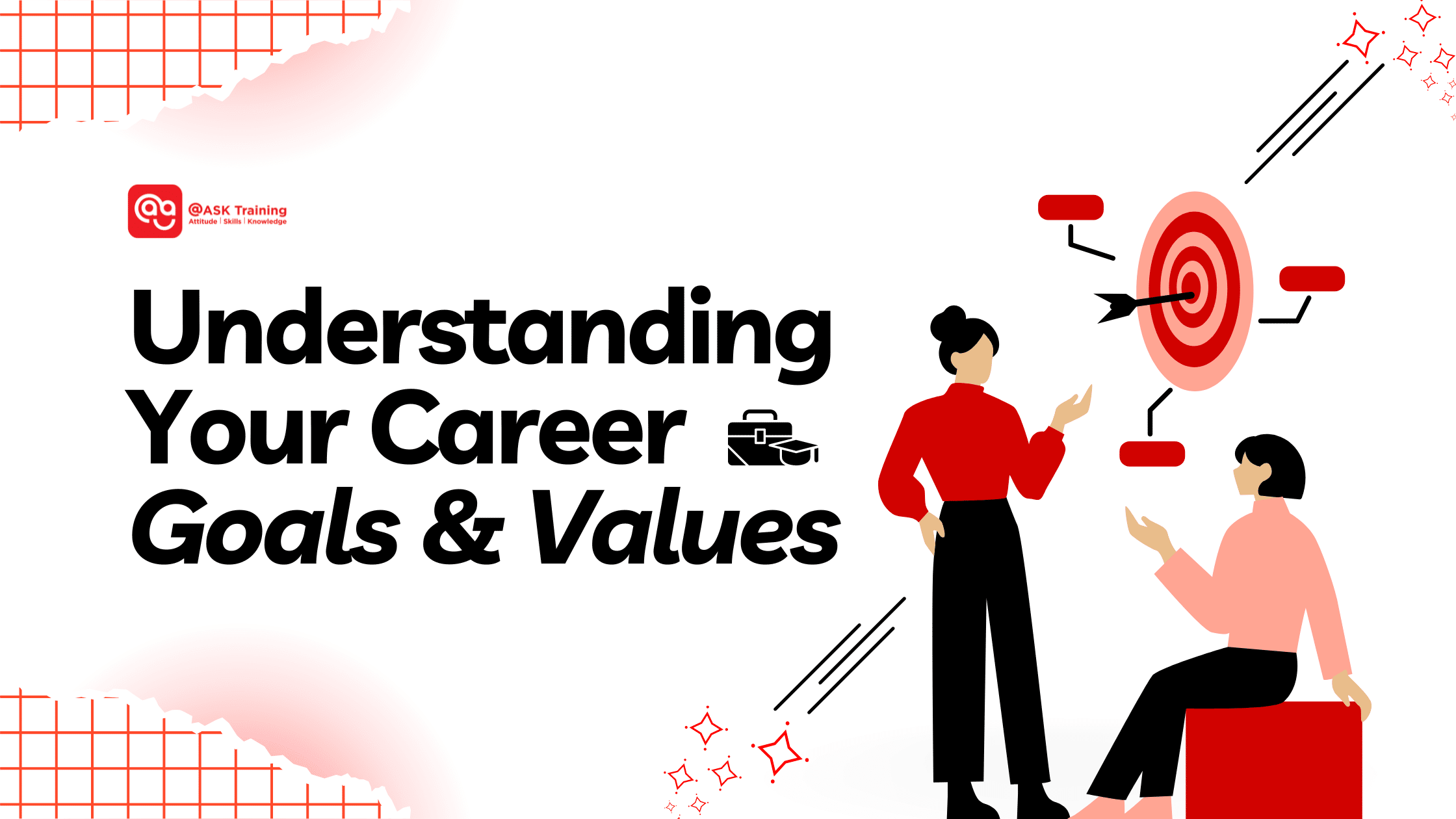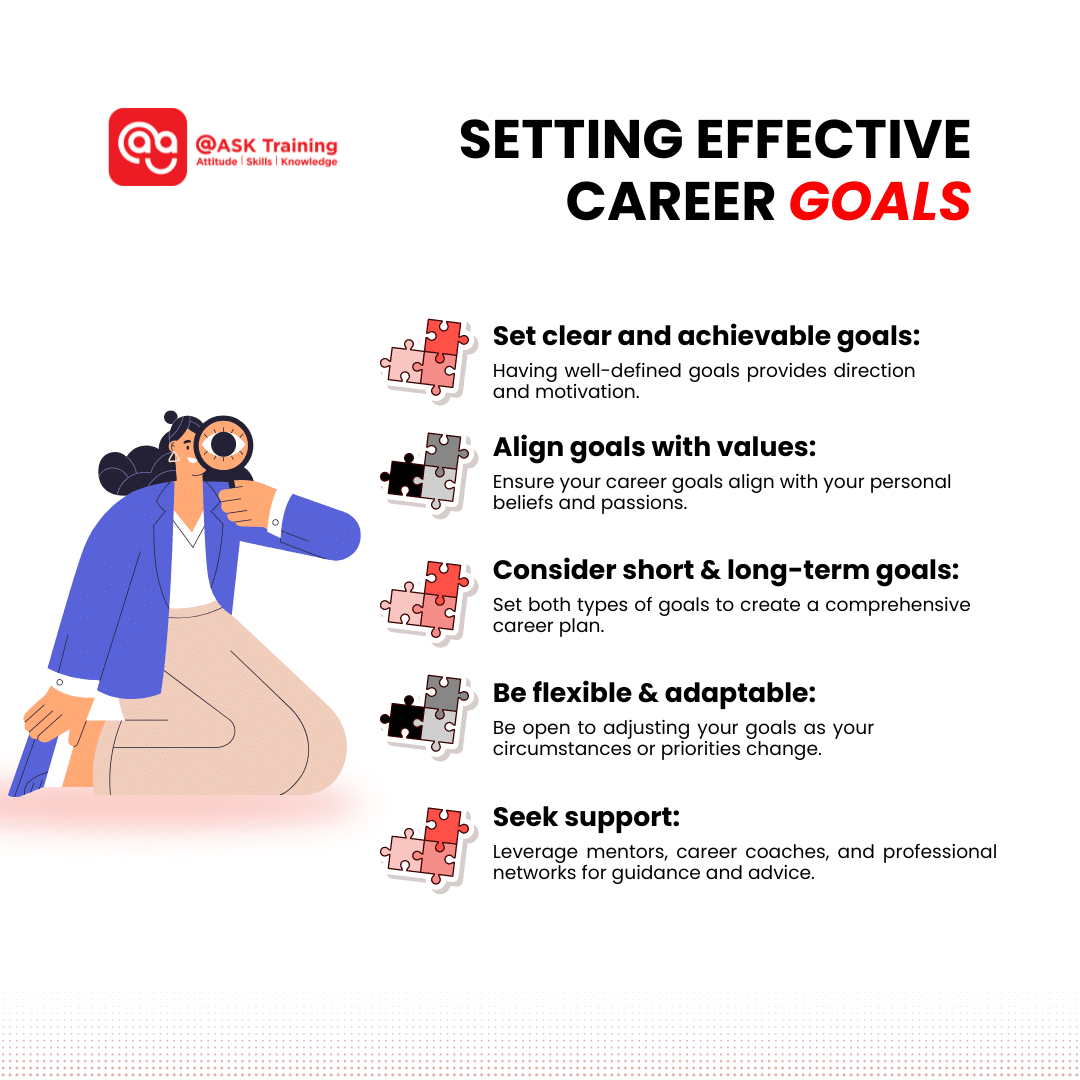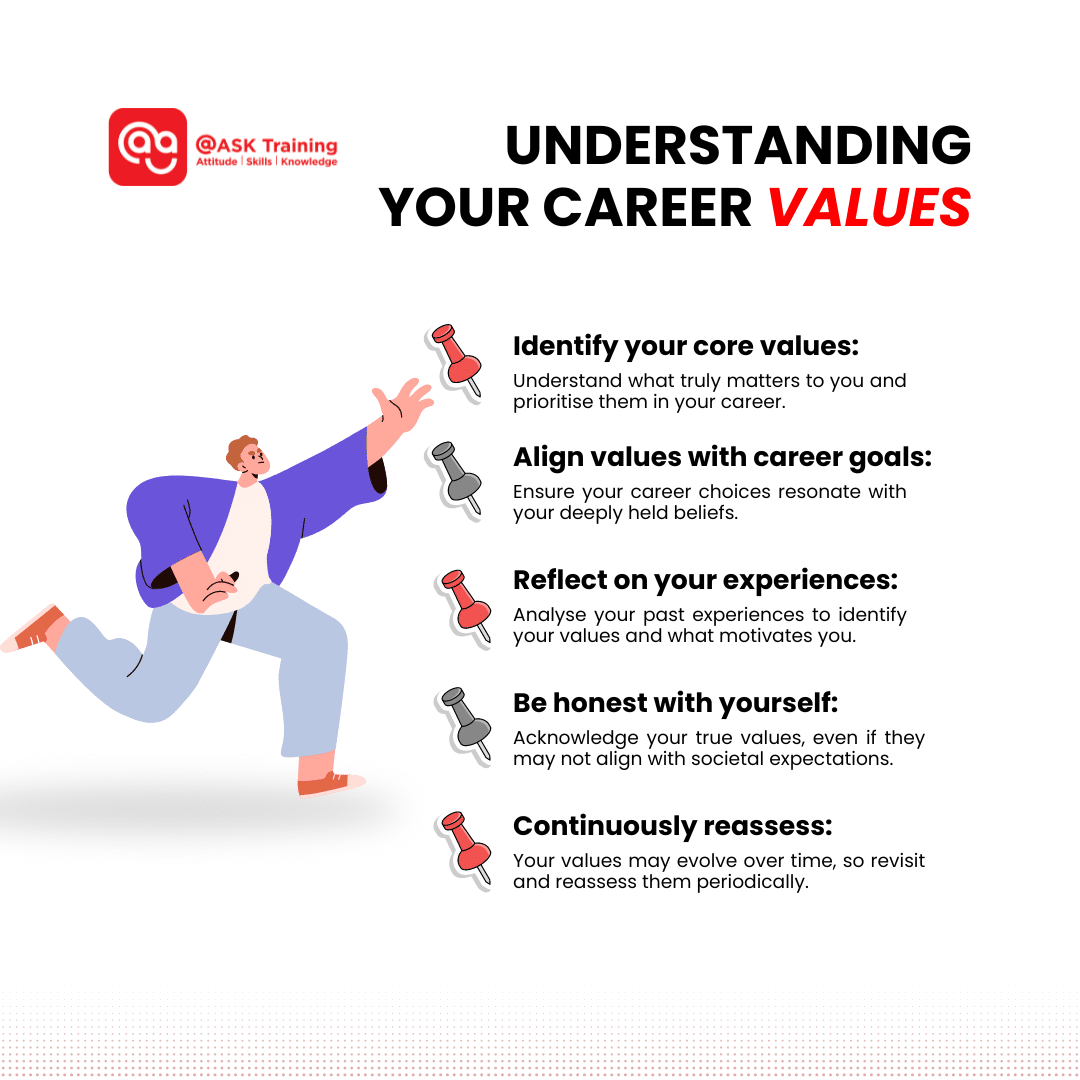 In today’s fast-paced world, understanding your career goals and values is essential for a fulfilling and sustainable professional journey.
One might ask, what is the difference between career goals and values?
Simply put, your values serve as your compass, guiding your decisions and actions. Your goals provide the destination you aim to reach. By aligning these two elements, you can create a career path that is both meaningful and rewarding.
Singapore’s recent rise in unemployment rates from 2.6% to 2.8% highlights the importance of understanding your career goals and values in a competitive job market.
This article will explore a few areas including:
In today’s fast-paced world, understanding your career goals and values is essential for a fulfilling and sustainable professional journey.
One might ask, what is the difference between career goals and values?
Simply put, your values serve as your compass, guiding your decisions and actions. Your goals provide the destination you aim to reach. By aligning these two elements, you can create a career path that is both meaningful and rewarding.
Singapore’s recent rise in unemployment rates from 2.6% to 2.8% highlights the importance of understanding your career goals and values in a competitive job market.
This article will explore a few areas including:
- The significance of career goals and values
- Aligning your career goals and values
- Challenges and the long-term impact of a well-defined career plan
The Significance of Career Goals
In Singapore, where retrenchment rates have fluctuated, having a well-defined career path can provide stability and resilience. Career goals provide a roadmap, guiding your professional journey and offering stability in uncertain times. Beyond career development, career goals should align with your interests. This ensures you stay motivated and committed to your career path. Doing so, you’ll be motivated to stick to them long term. Don’t be afraid to go too big or small with your goals. Smaller milestones can help you build momentum and confidence on your path to larger aspirations. For example, if you want to become a specialist in your field, explore what certifications and skills you need to achieve that. You can set numerous professional development goals, including:- Develop new skills or enhance existing ones
- Taking on a leadership role
- Improve your ability to manage conflicts
- Effective time management
- Expanding your professional networks
- Learning new technologies relevant to your field
- Training: Access to relevant training programmes
- Certifications: Support for obtaining industry-recognised certifications
- Mentorship: Opportunities for mentoring or coaching options
 By aligning your short-term and long-term goals, you create a coherent career plan. This helps you stay focused, motivated and make strategic decisions that contribute to your overall career success.
Now that we understand the importance of goals and their alignment, let’s dive in further to understand the importance of career values.
By aligning your short-term and long-term goals, you create a coherent career plan. This helps you stay focused, motivated and make strategic decisions that contribute to your overall career success.
Now that we understand the importance of goals and their alignment, let’s dive in further to understand the importance of career values.
Understanding and Defining Career Values
Think of your values as the foundation for your passion and purpose in your career — they define what is important to you and thereby can influence the passions you pursue and the purpose you seek. Some common career values include: Growth, happiness, financial stability, collaborating with others, work-life balance, autonomy, adventure, bravery, popularity etc. Your values are your answers to questions like:- “What is important for you in life?”
- “What are your non-negotiables?”
 By following the above steps, you’ll uncover the career values that shape your life and decisions.
By following the above steps, you’ll uncover the career values that shape your life and decisions.
Aligning Career Goals With Values, Passion, And Purpose
Your career values, passions, and purpose are interconnected. Aligning these elements is essential for a fulfilling career. To align your career goals with your values, passions, and purpose:- Consider your interests: Explore how your hobbies or passions can be incorporated into your career.
- Seek meaningful work: Look for opportunities that allow you to make a positive impact.
- Prioritise what matters most: Determine which elements (values, passion, or purpose) are most important to you at this stage of your career.
Overcoming Challenges in Your Career Planning
Aligning career goals with personal values and market realities can be challenging. Career planning in Singapore is influenced by several unique challenges including:- Economic Downturns: Recessions can lead to job losses and reduced opportunities, making it necessary to adapt your career plans and explore more resilient fields or industries.
- Evolving Skill Sets and Shifting Industry Trends: The rise of AI and other technologies is changing job requirements, necessitating continuous skill updates and potential shifts in career goals to remain competitive.
- Changing Personal Values: Shifts in personal values or priorities, such as seeking work-life balance over career advancement, can impact career goals and require adjustments to align with new aspirations.
- Continuous Self-Assessment: Regularly assess your skills, interests, and values to identify areas for improvement and explore potential career paths.
- Flexibility and Adaptability: Stay flexible and open to new possibilities such as non-traditional career paths—this can lead to fulfilling roles that you might not have considered before.
- Realign Your Career: If you’ve been retrenched, use this as an opportunity to reevaluate your career goals and values. Set new, achievable goals that align with your passions. Develop new skills and explore different career paths. Maintain confidence in your abilities and use this experience as a stepping stone towards a more fulfilling career.
- Lifelong Learning: Take advantage of government initiatives and resources to pursue further education and training.
- Mentorship and External Support: Mentors provide valuable guidance, industry insights, and opportunities that match your values. Career coaches and professional networks also offer support and perspective to help understand your career goals and market realities.
Long-Term Impact of Well-Defined Career Goals
Setting specific and achievable career goals can help improve your work performance and may even provide you with increased motivation and job fulfilment. Your professional goals may also aid you in earning a promotion, gaining more confidence in your work or learning a new skill. Once you’ve decided on your career goals, you’re better able to form the ideal career path to help you realise them. These long-term impacts of well-defined career goals include:- Enhance job satisfaction: A sense of purpose and accomplishment can lead to greater fulfilment in your work.
- Boost confidence: Achieving your goals can increase your self-belief and overall confidence.
- Foster personal growth: Pursuing meaningful goals often requires developing new skills and stepping outside of your comfort zone.
- Improve work performance: Having clear objectives can help you focus your efforts and achieve better results.
- Create a strong professional identity: Your career goals can define who you are professionally and shape your career path.
- Regularly review and adjust: Regular goal review and alignment so you can be prepared according to your circumstances or priority changes.
- Seeking support: Engaging career coaches and leveraging support networks
- Setting SMART goals: Documenting goals and setting achievable professional goals
- Deep self-reflection: Reflecting on past successes and career trajectory
- Celebrating growth and milestones: Acknowledge your progress and use it as a motivation to keep moving forward.
Wrapping Up
Understanding and aligning your career goals with your values is vital for achieving satisfaction and success in today’s professional landscape. Career goals provide direction and motivation, guiding your professional journey and ensuring a sense of purpose. Here are a few key takeaways from what we’ve explored in this article:- By identifying and clarifying your core values—what truly drives you and matters most—you can set meaningful goals that resonate with your deeper aspirations.
- Navigating the challenges of career planning requires flexibility and ongoing self-assessment.
- Being open to adapting your goals as you gain experience and as market conditions evolve is crucial.
- Seeking mentorship and external support can offer valuable insights and guidance, helping you align your goals with both personal values and market realities.
“Success is not the key to happiness. Happiness is the key to success. If you love what you are doing, you will be successful.” — Albert Schweitzer
Thinking of Taking the Next Step?
@ASK Training can be your ally in your career journey! Whether you’re looking to transition to a different industry or upskill to keep up with the trends, we are here to assist you! Discover a wide range of in-demand WSQ courses in fields such as digital marketing, IT, and more to equip yourself with today’s competitive landscape. We also offer career advisory services and resource support for those seeking career change, from identifying your strengths and developing a personalised plan to achieve your goals. Get in touch with us to explore which course suits you and the available SkillsFuture funding to ease your career journey!Related Courses
◆◆◆
